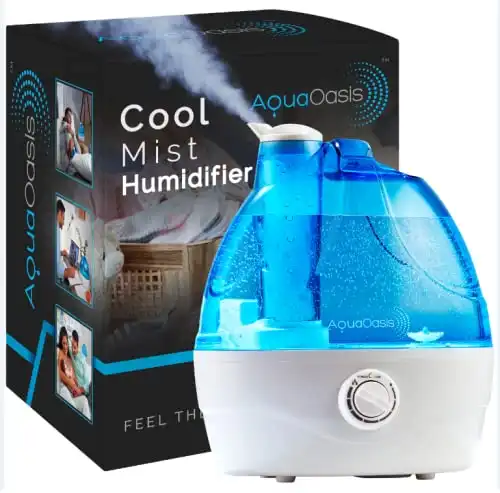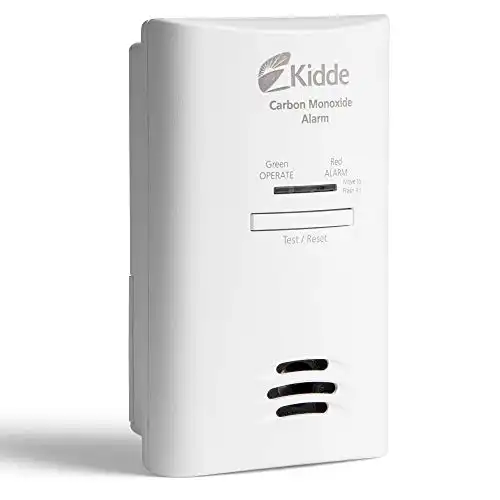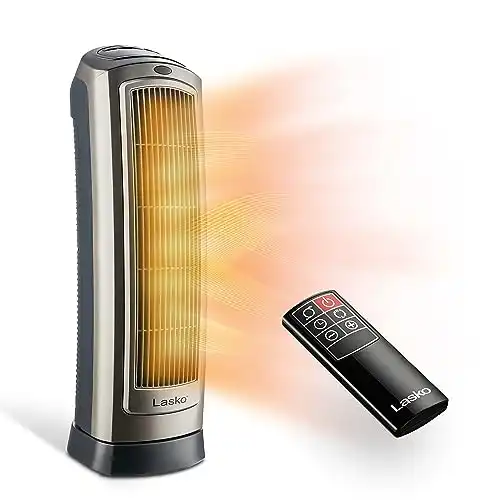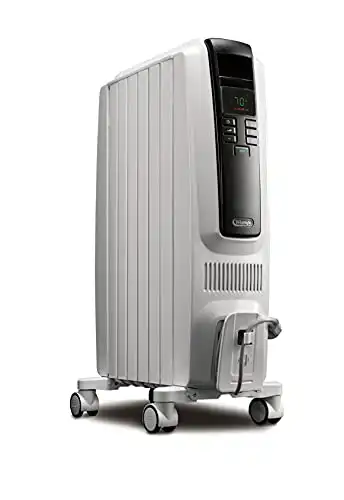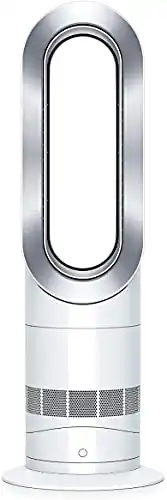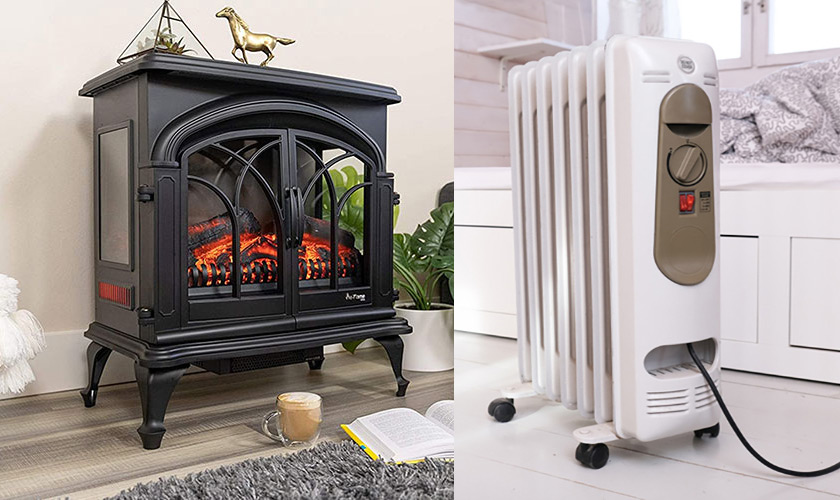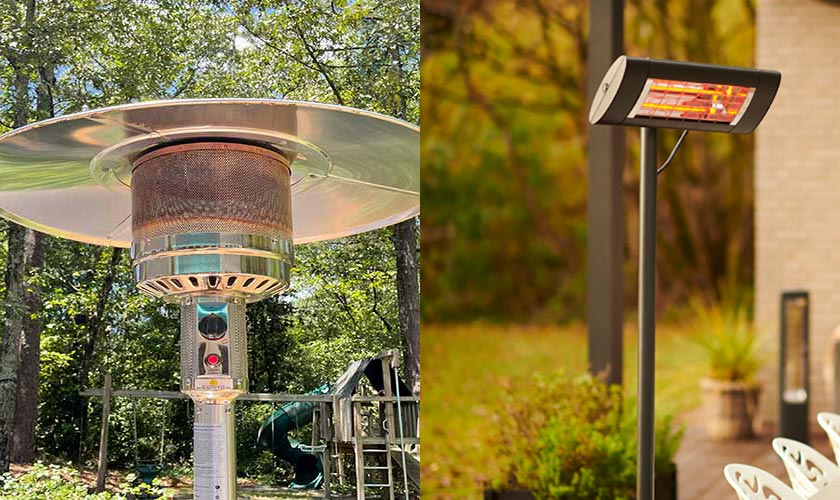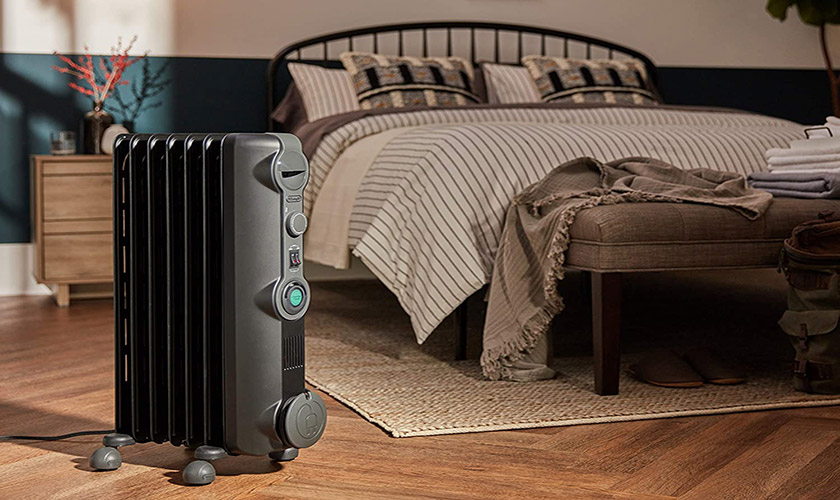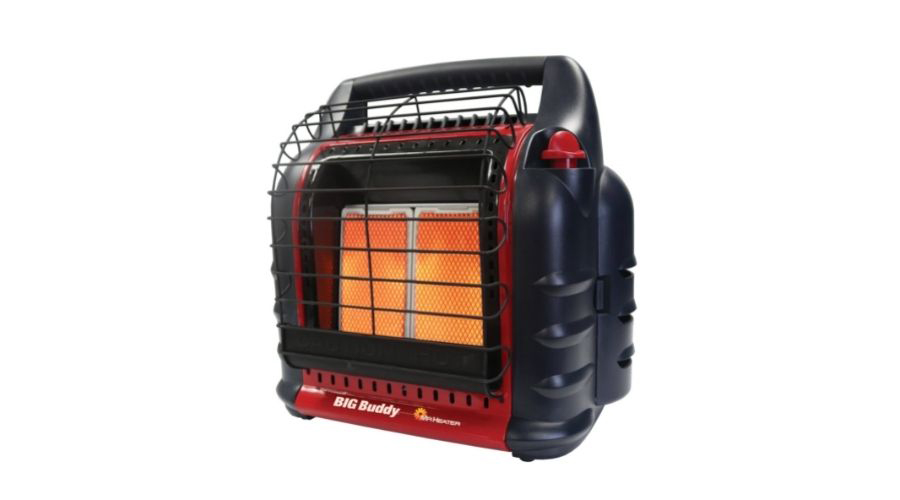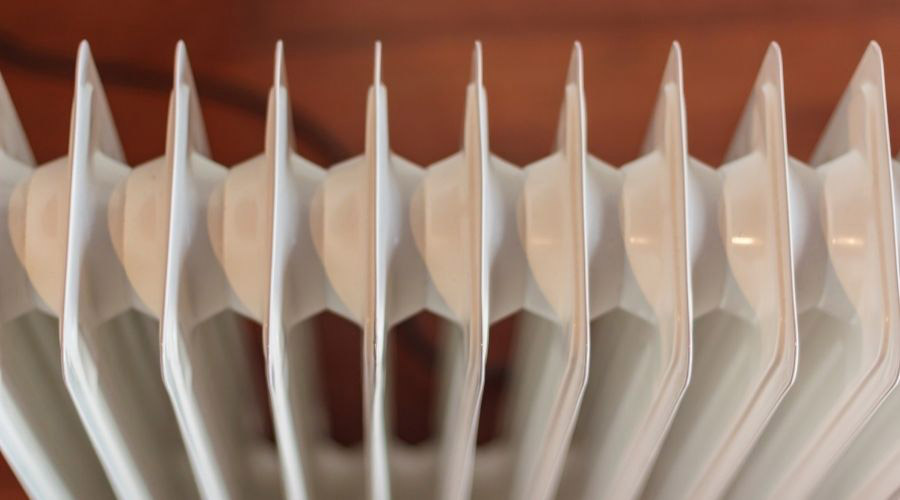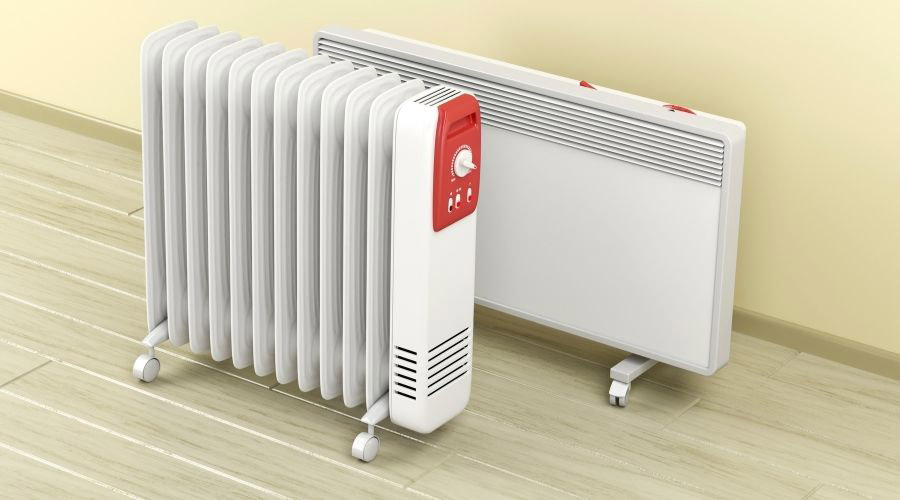
We lead hectic lives. We’re always on the go, doing something, and we don’t have time to stand by a space heater to ensure nothing happens. You must do the laundry, cook dinner, clean, keep the children occupied, work, etc.
If you use a space heater, you may sometimes leave it unattended. That’s why we need to ask how long space heaters can be left on without any risks?
There is no set time that you can leave space heaters without any risks. A fire could occur as soon as you leave it, or you can leave it for 5 hours, and nothing dangerous may happen. Modern space heaters have several safety features to reduce risks, but nothing short of supervision can eliminate risk.
It would be best to always look for space heaters with safety features because they can technically be left alone for a while as they have an automatic shut-off in case anything goes wrong.
Keep reading to find out what types of space heaters you might be able to leave unattended and what can go wrong if you do.
Can You Leave Space Heaters Unattended?
There are some space heaters you can leave unattended, and there are some that you should never go alone. Even though you can leave some space heaters unattended, it’s still not advisable.
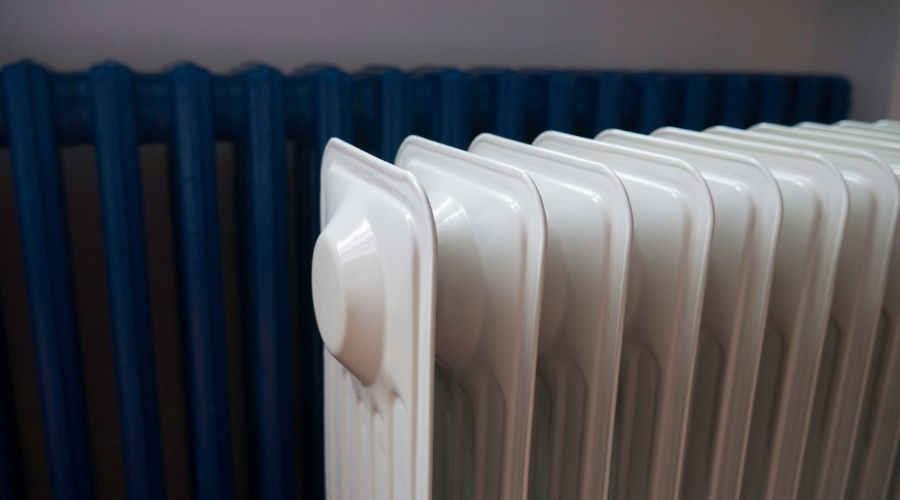
Oil-filled Heaters
This type of heater has thermal oil. An oil-filled space heater has an electrical element that thoroughly dips into the thermal grease, and as the element heats, so does the oil.
Even though this is one of the safest space heaters, many people hesitate to buy it because they believe they have to refill it.
However, oil-filled space heaters have a sealed casing, which means no oil can come out and no lubricant can come in. The thermal oil doesn’t evaporate.
Leave it to the professionals if you ever have to change the oil, which you probably won’t ever have to do. They know precisely which thermal oil goes into your oil-filled space heater and how to fill it.
You will commonly use this space heater for radiating one room. You could leave it unattended if you leave it in the proper position and keep it at a distance from fabric, carpet, drapes, and other flammable materials.
However, you shouldn’t leave it near a bed and don’t leave it unattended if you suspect it might be faulty.
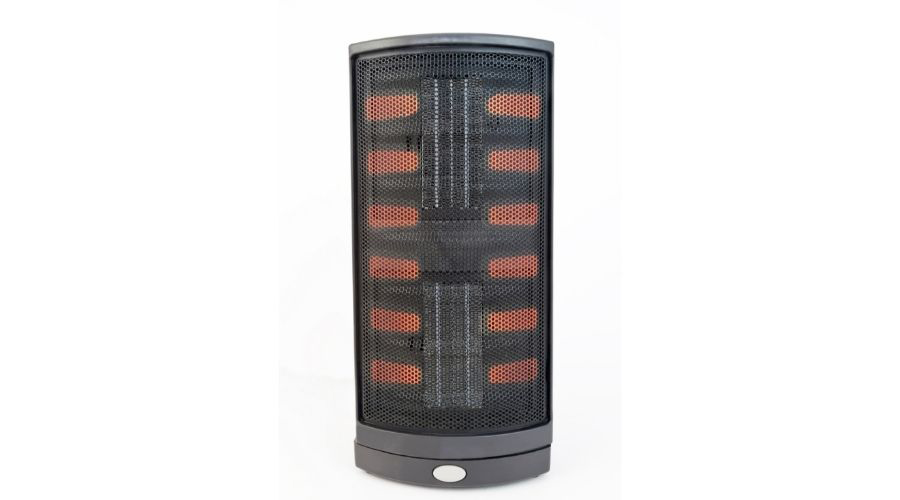
Ceramic Heaters
Ceramic heaters are electrical heaters whose exterior has plastic. However, their heating elements are from ceramic, one of the most long-lasting space heaters you will find on the market. They come in 2 different types, convective and radiant.
1. Convection
Convective heaters work first to use electricity, which heats the aluminum, then transfers the ceramic heat. They use the air in the room to warm the room. Most of them come with a fan to disperse the warmth better.
2. Radiant
Radiant heaters generate much longer-lasting heat. That is because this heater doesn’t heat the air; it heats the objects around it. Those objects absorb the heat and become warmer. They don’t have a fan since they don’t warm the air, so they are much quieter.
Since ceramic heaters are mostly hot on the inside but cold outside, they can be left unattended. Your child or pet won’t get burned if they touch it.
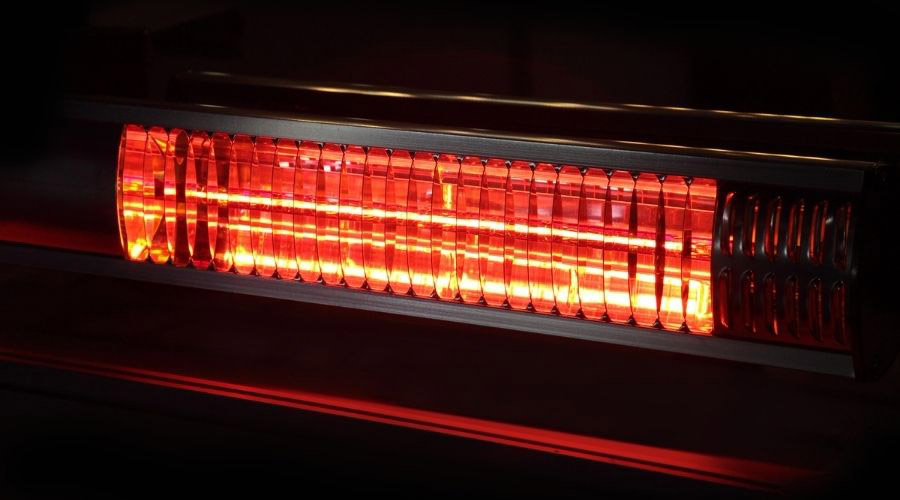
Infrared Heaters
Unlike most heaters, infrared heaters don’t heat the air; they heat the objects around them. They are also better for your health than other heaters because they don’t dry out the air or reduce oxygen in the space.
You will save money using infrared heaters because they only heat objects around them, not the whole room. That means you can put an infrared heater next to your desk while working.
It will keep you warm while the rest of the room is cold, so infrared heaters aren’t the best choice for rooms where you move around a lot. They start heating as soon as you turn them on and stop heating as soon as you turn them off.
This type of space heater is the safest one to leave unattended. However, it would be best to keep it out of reach of children and pets because the heater’s outer part can get hot.
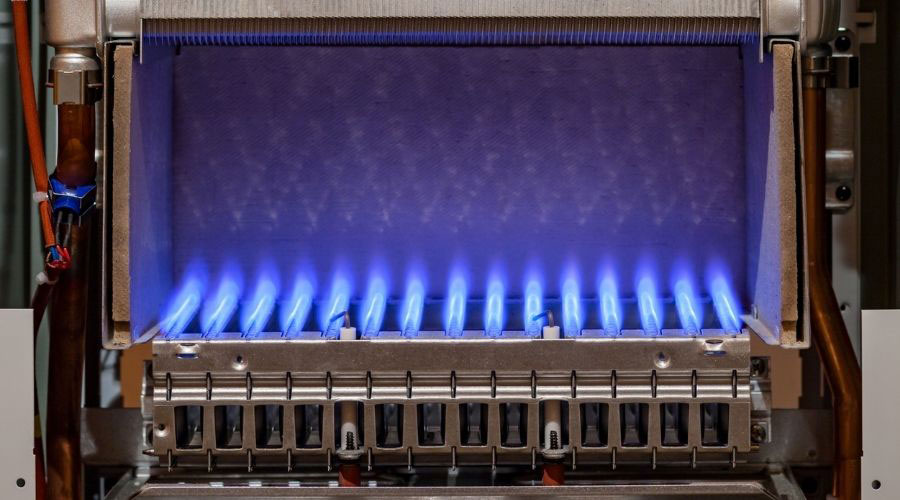
Propane Heaters
Propane heaters use propane to warm the room. They burn propane, which means they don’t need any electricity, making them very portable.
This type of heater is cheaper to run than electric heaters and can also produce the heat of the highest temperature.
Propane heaters should never be left unattended. They produce carbon monoxide and elevate the risk of fire.
What Can Happen If You Leave Space Heaters Unattended?
1. Shock Hazard
When you plug in your space heater incorrectly, it is a shock hazard, like all electronics. It is also a shock hazard if it’s damaged or the wires are damaged. This electrical issue can cause power failure and even shock someone.
2. Burns
Some space heaters have a colder exterior, while others have covers that heat up as they heat up. This cold exterior is an essential feature because it prevents any possible burns.
If you leave a space heater unattended and have children or pets, you risk them getting burned. Even one touch is enough to end up at the ER or the vet. Each year about 6.000 people get burned by space heaters.
3. Risk Of Fire
There are many different types and designs of space heaters. They can be tall, short, free-standing, wall-mounted, and so on.
Suppose you have a tall free-standing space heater. In that case, you will significantly increase the fire risk if you leave it unattended because it can easily tip over and end up on the carpet or near some other easily flammable material and potentially cause a fire.
You also have an increased fire risk if you use old or faulty space heaters. You should take fire very seriously because space heaters cause about 25,000 home fires annually in America.
Safety Precautions For Leaving Space Heaters Unattended?
If you ignore all the warnings not to leave your space heater unattended in your owner’s manual, then at least try to do it as safely as you can.
1. Keep Flammable Objects Away
Keep any flammable materials away from the heater. Combustible materials include gasoline, oil, fabric, beddings, and some furniture. You should keep these things at least 3 feet away from the heater.
2. Keep Children & Pets Away
Never leave children, pets, old, or disabled people alone in the room with an unattended space heater. Make sure you place the heater on a flat surface to minimize the risk of it tipping over.
3. Space Heaters Are Not Dryers
Never use a space heater to dry your clothes. Don’t even dry clothes near it, as it could result in a fire. You should never, under any circumstances, cover a space heater with any fabric.
4. Water & Heaters Do Not Mix Well
Keep your space heater away from water. We all know that electricity and liquid don’t go together, so make sure you remove all liquid that could get spilled on your space heater. Ideally, it would be best not to use space heaters in your kitchen or the bathroom due to these hazards.
5. Plug Your Heater Into A Wall Outlet
It would be best if you plugged your space heater directly into a wall outlet. Manufacturers don’t advise that you plug your space heater into extension cords, plug timer, or any other outlet that’s not on the wall.
That is because when you plug your space heater into anything but a wall outlet, you risk overloading the circuit, which leads to fire.
You should also keep your space heater away from the wall you’ve plugged it in because the wall can become overheated if you keep the heater too close to it. If you have no choice but to use an extension cord, use a short one with 14-gauge wires.
6. Install Carbon & Fire Alarms In Your House
Installing fire and carbon monoxide alarms in your home is a good idea. Otherwise, leaving your space heater unattended, you won’t know immediately if it causes a fire. However, an alarm will alert you immediately, and you’ll be able to react before it’s too late.
7. Check The Wiring
Before you use your space heater, check its wires. It would be best to do this before every use, especially when you haven’t used it. Even if your wires are slightly damaged, they can still cause a fire.
8. Pets Can Chew On Wires
Make sure you hide all the space heater wires from your pets. Pets like to chew on things and are very curious, especially when they’re still young.
If you leave the wires exposed, they can chew on them, leading to fire and even electrocuting your pet. If you don’t have anywhere to hide your wires, try using a spray you can get in a pet store, preventing your pet from chewing on things.
9. Don’t Run Wires Under A Carpet
Never run the space heater’s wires over or under a rug. This increases the fire risk because the cord can get damaged under the carpet, which can cause a fire. If a spark flies from your space heater’s wire and it’s on the rug, it will lead to a fire.
10. Keep Your Heater On The Floor
You might want to place your space heater on your desk to blow right in your face. However, space heaters are light, meaning they get knocked over easily when bumped, causing burns and even fires. Always keep the space heater on the floor.
11. Check For Certifications
Always check that your heater has a seal of a testing laboratory, for example, Underwriters Laboratories, Canadian Standards Association, or Intertek.
12. Safety Features
When buying a space heater that you know you’ll be leaving unattended, get one with a tip-over safety switch, which will automatically turn your space heater off if it senses that it has tipped over. It would be best to look for a heater with a cool exterior to minimize the risk of injuries.
How Long Can Space Heaters Be Left Unattended?
You really shouldn’t leave your space heater unattended for a long time. Leaving space heaters alone, even for a minute, can lead to disasters. You should avoid leaving them overnight due to the increased risk of fire and burns, which cause you to have nosebleeds and dry skin.
Nosebleeds occur when the blood vessels in your septum burst. They burst due to the dry air in your room, which dries out your nose. Most space heaters will dry out the air in your room if you leave them on for a long time.
Space heaters can also cause dry skin because they dry out the air. Dry skin might not sound like something dangerous, but it can be hazardous if it cracks.
Dry, cracked skin leaves openings where bacteria can enter your body, which can be harmful, especially in those with compromised immune systems.
You can fix these problems by getting a humidifier to keep your room sufficiently moist.
Even if you get a humidifier, you shouldn’t leave your space heater overnight or unattended. There is still a considerable high risk of fire and burns.
Do Most Space Heaters Turn Off Automatically?
Not all space heaters have an automatic turn-off function. You will find this feature in some more expensive units, but it’s worth paying a bit more because it can save your life.
That said, no machine is perfect; something could happen, and the automatic turn-off could fail, so you should never entirely rely on it. You can see this visual in the video above.
You can choose between three different types of automatic shut-offs. Some space heaters will only have one, while some will have all three.
1. Timed Shut-off
The first type is a timed shut-off. Timed shut-offs might sound familiar because most TVs have this feature. You can set how long you want your space heater to remain on, and once the time is up, the space heater turns itself off.
This feature is beneficial if you’re concerned about falling asleep before you get to turn it off or if you’re in a rush and don’t want to forget to turn it off. It is advisable to check if the space heater has turned itself off.
2. Automatic Shut-off
The second type of automatic turn-off function uses overheating sensors. The space heaters with this feature have built-in thermometers that measure the room’s temperature.
You can set your desired room temperature, and once the space heater reaches it, it will turn off. It will turn back on when it senses that the temperature has dropped under your desired temperature.
This feature will protect your space heater from overheating, thus protecting you from fire and saving you some money because it won’t make your room too hot.
3. Tip-over Sensor
The third type of automatic shut-off is the tip-over sensor. The space heaters with the tip-over sensor will shut off if they sense that they have tipped over. This anti-tip sensor will help minimize the risk of fire.
Space heaters with these features tend to be more expensive, but choosing these options can differ between life and death.
If your space heater has these features, it’s not as dangerous to leave it unattended, but it’s still not safe. Space heaters get easily damaged and knocked over, so you can never be sure that the automatic turn-off will fail.
What Is Carbon Monoxide?
Carbon monoxide (CO) is a gas without smell or color. When you inhale carbon monoxide fumes, it is very hard for your body to use oxygen.
Why Is It Dangerous?
CO is dangerous because it competes with oxygen in the blood. Carbon monoxide can end up harming your organs, especially your heart and brain.
Older people, pregnant women, children, and people with pre-existing health issues are at a greater risk of carbon monoxide poisoning.
The symptoms of carbon monoxide poisoning are:
- Headache
- Weakness
- Nausea
- Dizziness
- Fast heartbeat
- Cardiac arrest
- Seizures
- Blurry vision
- Loss of hearing
- Confusion
- Disorientation
- Coma
- Respiratory issues
- Sometimes, death.
You should contact your doctor immediately when you suspect carbon monoxide poisoning. They will take a blood test to confirm that the levels of carbon monoxide in your blood are high. You might also get a chest exam, X-ray, and neurological tests.
As soon as you suspect there might be elevated levels of carbon monoxide, leave your home, get some fresh air, and call your local emergency service.
If someone in your home is unconscious, take them outside immediately. If they have stopped breathing, call the ER and do CPR if you know how to do it. If you feel like you’d do more damage than good, you should wait until the ER comes.
Can You Get Carbon Monoxide Poisoning From A Space Heater?
Whether you get carbon monoxide poisoning depends on which kind of space heater you use. Electric space heaters won’t produce carbon monoxide because they don’t burn fuel to create heat.
Any space heater that burns fuel can produce carbon monoxide. Carbon monoxide is created when incomplete combustion leaves behind gas. Propane heaters can emit carbon monoxide and are within this class of space heaters.
Clearing Up Common Misconceptions
1. Oil Heaters Don’t Emit CO
Many people think that oil-filled space heaters also emit carbon monoxide, but that’s because they don’t understand how oil-filled space heaters work. The heater doesn’t burn the oil. It just warms it and uses it as a heat conductor.
2. Get A CO Detector
Using a propane space heater, you should install a carbon monoxide alarm. These alarms work exactly like smoke alarms, and they emit a high-pitched sound to tell you that carbon monoxide levels are high.
CO detectors give you enough time to leave your home and call the fire department, which will help you deal with the situation.
3. CO & CO2 Are Different
Many people confuse carbon monoxide with carbon dioxide. Carbon dioxide (CO2) is a product of breathing for people and animals.
It rarely happens that someone gets carbon dioxide poisoning, mainly in some industries where the level of carbon dioxide is high. Space heaters don’t emit carbon dioxide, so you shouldn’t worry about this.
Is It Dangerous To Leave A Space Heater Plugged In?
Like all electronic devices, space heaters are a shock hazard, increasing the risk of fire if left plugged in. Technically, leaving your space heater plugged in poses the same threat as leaving your phone charger or a toaster, or any other appliance plugged in.
If you aren’t gone for a long time, you could get away with leaving it plugged in. However, if you will be going away for a long time, it would be best to unplug it and other electronic devices.
Leaving your space heater plugged in may not seem like a big deal, but it’s not worth burning your house down because of the extra 2 seconds it takes to unplug your space heater. Space heaters shouldn’t even be on all the time so if you’re not using them, unplug them.
What Is The Safest Heater?
It would be best to look out for a few things when buying a heater to ensure it’s safe. Make sure you purchase space heaters with a safety certification label from well-known testing organizations.
Get a space heater with an intelligent sensor that can sense if the space heater has tipped over. It would also be a good idea to look for space heaters with overheating and timer sensors. It would be best to look for space heaters with a GFCI plug that prevents electric shock.
Conclusion
In conclusion, certain space heaters are safe to be left on without much risk. However, we still recommend you turn the heater off and unplug it while you are away, especially if it is all day long. Although coming to a nice, warm home may be nice, it is not worth the risks that can be avoided by turning it off in the first place.


